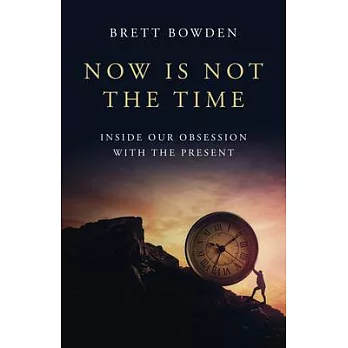Human beings have an overwhelming tendency to overemphasize the significance of the present without considering context or historical perspective. For many, here and now is as good as it gets - we have steadily progressed from a savage past, and all we have to look forward to is the great unknown. But if our literature and cinema are anything to go by, many are convinced that the future will indeed be dystopian. At the same time, arguments abound that living in the moment is a key to happiness and success. However, to privilege the present over the past or future, Brett Bowden argues, is to engage in tempocentrism. More than a mere preoccupation with the present, tempocentrism involves comparing and judging the past in relation to the present, with the tendency to assume that the present isn’t only materially and qualitatively different from the past but also superior to it, often morally so. Yet tempocentrism, a mistaken belief in the unprecedented nature of events going on around us, brings with it a skewed perspective loaded with bias and prejudice. Requiring just as much ignorance and arrogance as Eurocentrism - tempocentrism implies that the present is somehow superior to the past because we live in it now. The point, however, is not to suggest that there is not something special about the present - there might well be - but now is not the time to decide whether it is more significant than previous moments, or those still to come. Depending on the issue or event in question, the time for that is later ... possibly hundreds or thousands of years later.



 天天爆殺
天天爆殺  今日66折
今日66折 




























 博客來
博客來 博客來
博客來 博客來
博客來 博客來
博客來 博客來
博客來